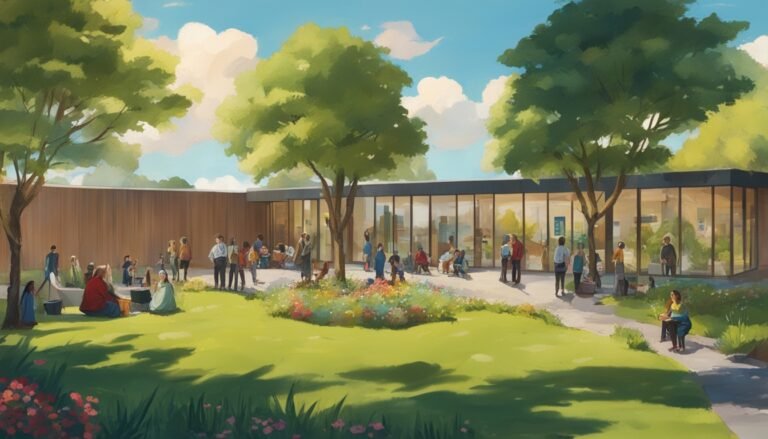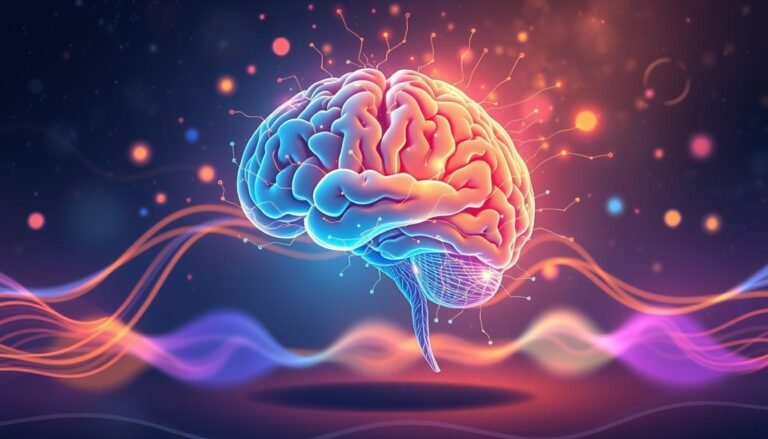Grief Counseling: Finding Comfort in Hard Times
Have you ever felt like the world stopped when you lost someone close? Grief can make us feel lost and alone. Yet, grief counseling offers hope, guiding us towards healing.
Grief is a personal experience, with 72% feeling isolated in their sorrow. It’s hard to talk about loss, as 65% of those grieving struggle. But you’re not alone in this tough time.
Bereavement support comes in many ways, like professional counseling and groups like GriefShare. These groups, found worldwide, offer a safe space to share and heal. In fact, 81% of participants find comfort in connecting with others who understand their pain.
Loss and trauma therapy helps you process your emotions and express your grief in healthy ways. It’s a journey of self-discovery and healing. Seeing others find hope in their grief journey helps 67% of individuals find hope too.
There’s no “right” way to grieve. Everyone’s journey is unique, and that’s okay. Grief counseling is here to support you, offering tools and strategies to help you through this difficult time.
Understanding the Nature of Loss and Mourning Process
The mourning process is a journey that feels unique to each person. It involves dealing with a mix of emotions and experiences. Healing from loss is not straightforward; it has its ups and downs.
The Personal Journey of Grief
Grief is as unique as the bond we had with what we’ve lost. It’s a personal experience that can show up in many ways. The path through grief is not always smooth, and healing has no set time frame.
Common Emotional Responses to Loss
People going through mourning may feel a variety of emotions. These can include:
- Sadness and depression
- Anger and frustration
- Anxiety and restlessness
- Guilt and regret
- Numbness and shock
It’s key to know these feelings are normal parts of healing. You might also feel tired, have headaches, or feel sick more easily.
Breaking the Myths About Grieving
There are many wrong ideas about grieving. Let’s clear up some common myths:
| Myth | Reality |
|---|---|
| Grief follows a set timeline | There’s no “normal” duration for grief |
| You should be “over it” quickly | Healing takes time and patience |
| Staying busy helps you forget | Acknowledging your feelings is important |
| Grief only happens after death | You can grieve various types of losses |
Knowing these truths can help you cope with loss better. It can lead to a healthier way of dealing with grief. Remember, getting help from grief counseling can be very helpful for many people.
Grief Counseling: Professional Support and Guidance
Grief counseling offers a safe space to heal after loss. It helps people understand their grief and manage strong emotions. Professionals in End-of-Life Care are key in this healing process.
Role of Grief Counselors and Chaplains
Grief counselors and chaplains support during tough times. They help people deal with feelings like sadness, anger, and guilt. They create a safe place to share feelings without fear of judgment.
About 15% of people may face complicated grief lasting over a year. In these cases, getting professional help is vital. Death and Dying Counseling can help build coping strategies faster.
Individual vs. Group Counseling Approaches
Grief counseling comes in individual and group forms. Individual sessions offer personal attention. Group counseling lets people connect with others facing similar challenges. The choice depends on what you prefer and need.
Creating a Safe Space for Healing
A safe space is crucial for healing. Grief counselors use many techniques to help cope:
- Building coping strategies
- Identifying unhealthy behaviors
- Developing a new identity to move forward
Finding the right counselor is important. Look for their experience, training, and how comfortable you feel with them. A good counselor can help you move from intense mourning to acceptance and hope.
“Grief counseling provides essential support and guidance to help individuals navigate the emotional challenges of loss and find healing and acceptance.”
Remember, seeking help is a sign of strength. If grief affects your daily life, don’t hesitate to seek professional support.
Practical Coping Strategies for Healing
Grief Management Techniques are key to dealing with loss. They help people find comfort and start healing.
Staying Present in the Moment
Mindfulness is a great way to cope with grief. It helps you stay in the now, avoiding worries about the future. Setting small goals keeps you focused and moving forward.
Building a Support Network
It’s important to connect with those who get your pain. Reach out to friends, family, or support groups for comfort. You don’t have to go through grief by yourself.
Expressing Grief in Healthy Ways
It’s crucial to find healthy ways to express your feelings. Here are some ideas:
- Write down your thoughts and feelings
- Create art or music to share your emotions
- Try physical activities like walking or yoga
- Volunteer to honor your loved one’s memory
Stay away from unhealthy coping habits. Instead, focus on the good times with your loved one. Be kind to yourself as you heal.
| Coping Strategy | Benefits |
|---|---|
| Mindfulness | Reduces anxiety, improves focus |
| Support Network | Provides emotional comfort, reduces isolation |
| Healthy Expression | Releases emotions, promotes healing |
Using these strategies can help you heal while respecting your grief. Remember, grieving takes time, and getting help is okay if you need it.
Finding Connection Through Support Groups
Support groups are key in Grief Recovery. They provide a place for people to share their stories and find comfort. Many find solace in these groups as they navigate loss and start healing.
Grief support groups vary in focus. Some are for specific losses, like the death of a child or a suicide. Others mix talk therapy with activities like meditation or hiking. This variety helps people find a group that suits their needs.
Local hospices, churches, and hospitals often host these groups. They are usually free and open to everyone. Online groups also exist, connecting people from all over who are grieving.
“Being part of a grief support group can counter feelings of loneliness and isolation.”
Not everyone finds support groups helpful. Some may feel overwhelmed or get advice that doesn’t help. Remember, these groups are not a replacement for professional therapy.
When looking for a support group, consider the facilitator’s experience and the group’s structure. Choose groups that respect each person’s grief journey and avoid those with strict expectations.
Support groups are a powerful tool in the grief recovery journey. They offer a chance to connect, share, and heal with others who truly get it.
Conclusion
Grief counseling is a key part of helping people deal with loss and trauma. It gives them professional help and support during hard times. Counseling offers a safe place for people to share their feelings and start healing.
Research shows grief counseling can really help. A study with 344 people found those who got counseling did better than those who didn’t. This shows how important professional help can be in dealing with loss.
Grief counseling teaches people how to cope and manage their emotions. It’s not just about dealing with loss. It’s about finding a way to move forward and find new meaning in life. This journey can change a person’s life, helping them grow stronger after loss.
Even though grief can make you feel alone, you’re not by yourself. There are grief counseling and therapy services ready to help. They offer kindness, understanding, and hope for healing.
Source Links
- Need Help Dealing with Grief?
- Finding Comfort in Grief: The Power of Support Groups – CHRIS 180
- Finding hope in hard times
- What Is Grief Counseling? Techniques and How It Helps
- Grief Counselling : Nature of grief | Grief Stages
- What Is Grief Counseling?
- The Benefits of Grief Counseling After Losing a Loved One
- Coping with Grief and Loss: Stages of Grief and How to Heal
- Mya Care
- Bereavement Strategies – Coping with Grief and Loss | Three Oaks Hospice
- Grief Support Groups: Positives and Pitfalls
- The Benefits of Healing With Grief Support Groups – Bethesda
- How to Choose the Right Grief Support Group For You: What to Look for & What to Avoid
- Understanding Grief: Role & Impact of Grief Counseling
- Effectiveness of bereavement counselling through a community‐based organization: A naturalistic, controlled trial








